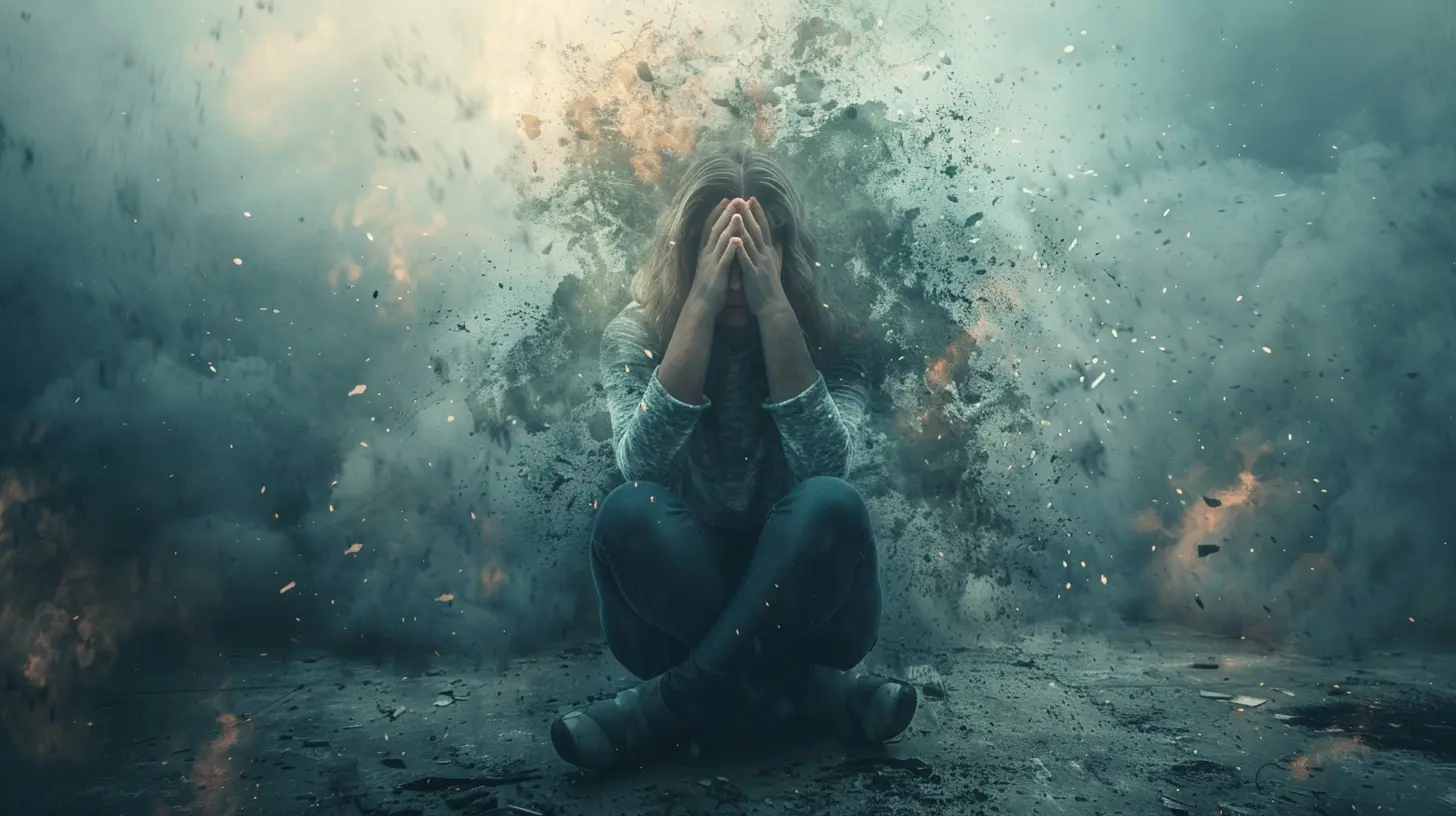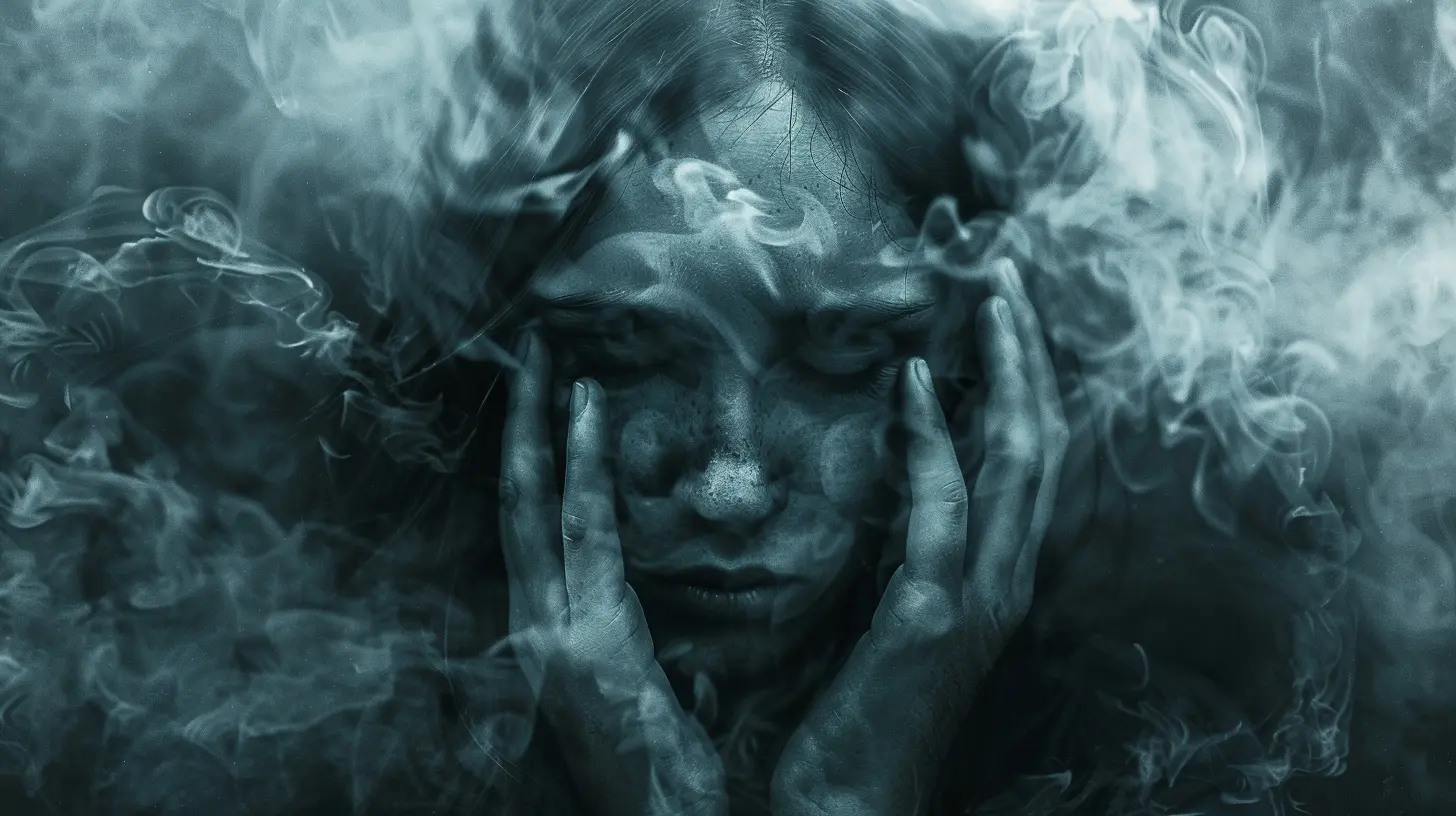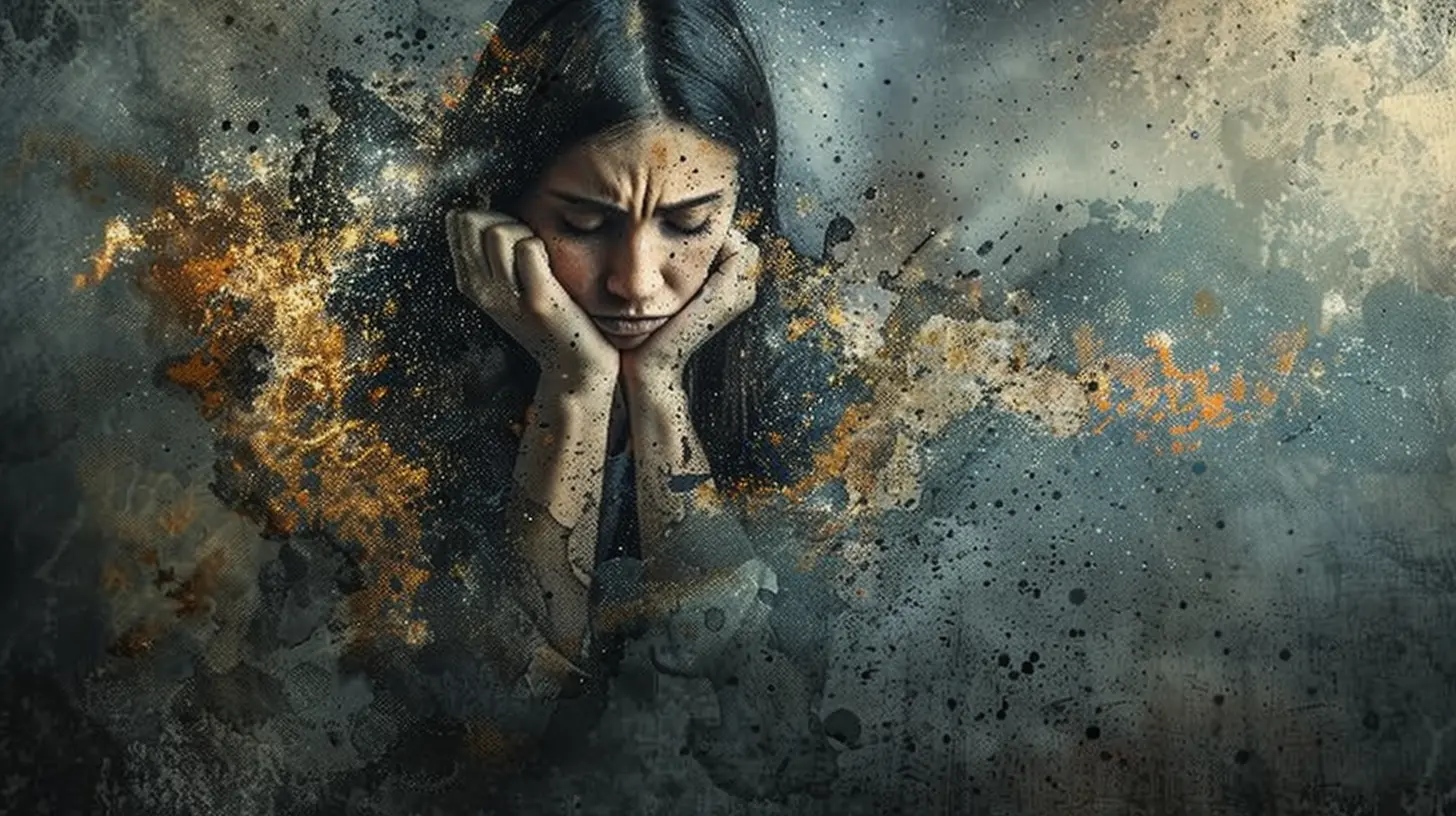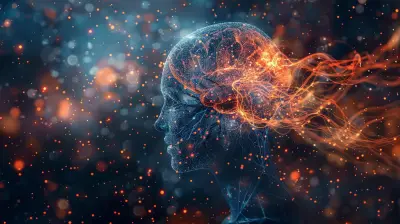The Connection Between Trauma and Anxiety: Unraveling the Link
23 February 2025
Have you ever wondered why, after going through a traumatic experience, you can’t seem to shake that lingering feeling of anxiety? You’re not alone. Many people find themselves trapped in a cycle of fear and worry after experiencing a traumatic event. But what exactly is the connection between trauma and anxiety? And why does one often lead to the other?
In this article, we’ll dive deep into this relationship, exploring how trauma can trigger anxiety, the science behind this link, and ways to manage and heal from it. By the end, you’ll have a better understanding of why trauma and anxiety often go hand-in-hand—and most importantly, what you can do about it.

What Is Trauma?
Before we explore the connection between trauma and anxiety, let’s first define what trauma really is. Trauma isn't just about the "big" events like car accidents or natural disasters. It can stem from anything that overwhelms your ability to cope.Trauma is often categorized into three types:
1. Acute Trauma: This happens after a single distressing event (e.g., a serious accident, witnessing violence, or losing a loved one unexpectedly).
2. Chronic Trauma: This occurs when someone is exposed to prolonged or repeated traumatic events (e.g., long-standing abuse, bullying, or neglect).
3. Complex Trauma: This is when a person experiences multiple traumas, often starting in childhood and continuing over time.
Trauma is highly subjective—what might be traumatic for one person might not be for another. But no matter the form, trauma leaves deep emotional scars and has a lasting impact on mental health.

Understanding Anxiety
Now, let's talk about anxiety. Anxiety is a natural and normal response to stress. It’s that feeling you get when your heart races before a big presentation or when you’re anxiously waiting for a phone call.However, when anxiety becomes chronic and overwhelming, it crosses into the territory of an anxiety disorder. Anxiety disorders are the most common mental health condition, affecting millions of people worldwide. These disorders include generalized anxiety disorder (GAD), panic disorder, social anxiety, and more.
Common symptoms of anxiety include:
- Excessive worry
- Racing thoughts
- Restlessness or feeling on edge
- Difficulty concentrating
- Physical symptoms like a racing heart, sweating, or shortness of breath
But how do trauma and anxiety become so closely intertwined?

The Link Between Trauma and Anxiety
It’s no secret that trauma and anxiety often appear together, but why? Let’s unpack it.Fight-or-Flight Response
When you experience trauma, your body goes into survival mode, commonly known as the “fight-or-flight” response. This is a biological reaction designed to protect you from danger. Your brain identifies a threat, and boom—you get a surge of adrenaline, your heart starts racing, and your senses heighten, preparing you to either fight the threat or flee from it.While this response is helpful in immediate danger, it can become problematic when it doesn’t turn off. After trauma, your brain can get stuck in this hyper-alert state, constantly scanning for threats, even when you’re safe. This heightened state of alertness can manifest as chronic anxiety, where your body reacts as if you're in danger even when you're not.
Trauma Changes the Brain
Trauma doesn’t just affect your mind—it can physically alter your brain. Research has shown that trauma can actually change the structure and function of the brain, particularly in areas related to fear and anxiety.1. Amygdala: This part of the brain is responsible for processing emotions like fear. After trauma, the amygdala becomes overactive, making you more sensitive to perceived threats.
2. Hippocampus: The hippocampus plays a role in memory and learning. Trauma can shrink this area of the brain, making it harder to differentiate between past trauma and present safety.
3. Prefrontal Cortex: This is the rational part of your brain that helps regulate emotions. In trauma survivors, the prefrontal cortex may become less active, which can make it harder to manage anxiety and stress.
These brain changes help explain why trauma survivors often feel trapped in a constant state of fear and worry.
Trauma and Anxiety Disorders
While not everyone who experiences trauma will develop an anxiety disorder, there is a strong correlation between the two. In fact, trauma is one of the leading causes of anxiety disorders, including:- Post-Traumatic Stress Disorder (PTSD): PTSD is a condition that can develop after exposure to severe trauma. People with PTSD often experience flashbacks, nightmares, and heightened anxiety even long after the trauma has passed.
- Panic Disorder: Trauma can also trigger panic attacks—sudden, intense episodes of fear that feel like a heart attack. For some, these panic attacks evolve into panic disorder, where the fear of having another attack causes chronic anxiety.
- Generalized Anxiety Disorder (GAD): Trauma survivors may develop GAD, a condition where they experience excessive, uncontrollable worry about everyday events, even when there’s no immediate danger.

Why Trauma Can Make Anxiety Worse
Trauma and anxiety feed off each other in a vicious cycle. Here’s how it works:- Hypervigilance: After trauma, your brain becomes hypervigilant, meaning you’re constantly on the lookout for danger. This makes it hard to relax and can lead to chronic anxiety.
- Avoidance: Many trauma survivors develop avoidance behaviors, where they steer clear of anything that reminds them of the trauma. While avoiding triggers may seem helpful in the short term, it often makes anxiety worse over time because it reinforces the fear.
- Emotional Numbing: Some trauma survivors try to cope with their feelings by emotionally numbing themselves. While this may provide temporary relief, it can lead to a buildup of unresolved emotions, which can fuel anxiety.
Coping with Trauma-Related Anxiety
If you’re struggling with trauma-induced anxiety, know that healing is possible. Here are some strategies to help manage and overcome the lasting effects of trauma and anxiety.1. Seek Professional Help
One of the most effective ways to address trauma and anxiety is through therapy. A trained therapist can help you process your trauma and develop coping strategies for managing anxiety. Types of therapy to consider include:- Cognitive Behavioral Therapy (CBT): CBT is a common treatment for anxiety that helps you identify and change negative thought patterns. It’s been shown to be particularly effective for trauma survivors.
- Exposure Therapy: This type of therapy gradually exposes you to trauma-related triggers in a safe environment, helping you reduce fear and anxiety over time.
- EMDR (Eye Movement Desensitization and Reprocessing): EMDR is a specialized therapy that helps trauma survivors process distressing memories and reduce their emotional impact.
2. Practice Mindfulness and Relaxation Techniques
Mindfulness practices, like meditation and deep breathing exercises, can help you stay present and grounded, reducing anxiety. These techniques teach you how to focus on the here and now, rather than getting lost in anxious thoughts about the past or future.3. Build a Support System
You don’t have to go through this alone. Having a strong support system can make all the difference when coping with trauma and anxiety. Whether it’s friends, family, or a support group, having people to talk to can provide emotional relief and remind you that you’re not alone.4. Take Care of Your Physical Health
There’s a strong connection between mental and physical health, so taking care of your body can have a positive impact on your anxiety levels. Regular exercise, a healthy diet, and ample sleep can help regulate your mood and reduce anxiety symptoms.5. Journaling
Writing down your thoughts and feelings can be incredibly therapeutic. Journaling allows you to express emotions that might be difficult to verbalize, and it can help you process your trauma in a safe, private way.6. Limit Triggers
While it's important not to avoid all triggers, it’s also helpful to limit exposure to things that worsen your anxiety. This might mean setting boundaries with certain people, avoiding specific places, or cutting back on stressful media consumption.
Healing Is Possible
It’s important to remember that healing from trauma and anxiety is a journey, not a destination. There’s no magic cure, but with the right tools and support, you can work through your trauma and find relief from anxiety.The road to recovery may be long and winding, but it’s worth it. You deserve to feel safe and at peace in your own mind and body.
Conclusion
The connection between trauma and anxiety is complex, but understanding this link is the first step toward healing. Trauma can leave a lasting imprint on the brain, making it difficult to shake the anxiety that follows. However, with the right coping strategies and professional support, you can break free from the cycle of fear and reclaim your life.Have you or someone you know experienced trauma that led to anxiety? Remember, it's okay to ask for help. You're not alone, and healing is always possible.
all images in this post were generated using AI tools
Category:
Psychological TraumaAuthor:

Ember Forbes
Discussion
rate this article
9 comments
Callista McAleer
Trauma can cast a long shadow, but understanding its link to anxiety is the first step towards healing. By unraveling this connection, we empower ourselves to break free from the past and embrace a brighter, more resilient future. Healing is possible!
March 19, 2025 at 5:19 PM

Ember Forbes
Thank you for your insightful comment! Understanding the relationship between trauma and anxiety is indeed crucial for healing. Embracing this journey can lead to empowerment and resilience.
Adam Collins
In shadows deep, where echoes dwell, Trauma's whispers weave a spell. Anxiety dances, a fragile thread, Unraveling truths, where hearts once bled. Healing begins, as stories spread.
March 15, 2025 at 3:25 PM

Ember Forbes
Thank you for your beautiful poetic expression! It captures the essence of how trauma and anxiety intertwine, highlighting the importance of healing through sharing our stories.
Zane McKittrick
This article beautifully highlights how our past shapes our present. It’s a comforting reminder that understanding the roots of anxiety can be the first step toward healing. Thank you!
March 9, 2025 at 5:38 PM

Ember Forbes
Thank you for your thoughtful comment! I'm glad you found the article meaningful in exploring the connection between trauma and anxiety.
Naomi McLanahan
Understanding trauma's impact on anxiety is crucial for effective mental health treatment.
March 2, 2025 at 3:50 AM

Ember Forbes
Thank you for your insight! Recognizing trauma's role in anxiety is indeed vital for tailored and effective mental health care.
Kenneth Henson
Understanding trauma's impact makes the journey to healing feel more possible!
March 1, 2025 at 4:04 PM

Ember Forbes
Absolutely! Recognizing trauma's effects is a crucial step toward healing and managing anxiety effectively. Thank you for sharing your insights!
Kassidy McNeely
This article effectively highlights the intricate relationship between trauma and anxiety, emphasizing how past experiences can shape emotional responses. Understanding this connection is crucial for effective treatment and fostering resilience, ultimately guiding both individuals and practitioners towards more informed therapeutic approaches.
February 26, 2025 at 5:54 AM

Ember Forbes
Thank you for your insightful comment! I'm glad you found the article highlights the importance of understanding trauma and its impact on anxiety. This awareness is key to improving therapeutic practices and supporting resilience.
Vance Luna
Hidden scars shape anxious minds.
February 25, 2025 at 4:19 AM

Ember Forbes
Absolutely, hidden scars can deeply influence our mental landscape, often manifesting as anxiety. Understanding this connection is crucial for healing.
Fallon Patel
Trauma doesn't just leave scars; it rewires our brains, igniting anxiety in ways many fail to grasp. Understanding this connection isn't just important—it's essential for healing. Let's stop tiptoeing around the truth: acknowledging trauma's impact on anxiety is the first step toward reclaiming our mental health and breaking the cycle.
February 24, 2025 at 4:04 PM

Ember Forbes
Absolutely, acknowledging the profound impact of trauma on our mental health is crucial. Understanding this connection is key to effective healing and recovery. Thank you for emphasizing the importance of this conversation!
Zevran Sharp
Thank you for shedding light on the intricate relationship between trauma and anxiety. Your insights are invaluable for understanding how past experiences shape our mental health. This article provides a thoughtful perspective that encourages further exploration and awareness of these critical issues in psychology.
February 23, 2025 at 4:19 PM

Ember Forbes
Thank you for your thoughtful comment! I'm glad you found the article helpful in exploring the connection between trauma and anxiety. Your engagement is much appreciated!
MORE POSTS

Understanding the Neuroscience Behind Motivation

How Meditation Enhances Cognitive Function and Focus

The Link Between Job Satisfaction and Mental Health

How Early Experiences Shape Cognitive Development in Children

How Childhood Trauma Shapes Adult Psychological Disorders

Trauma and Sleep Disturbances: Why Nightmares Won’t Go Away

The Role of Standardization in Psychological Tests